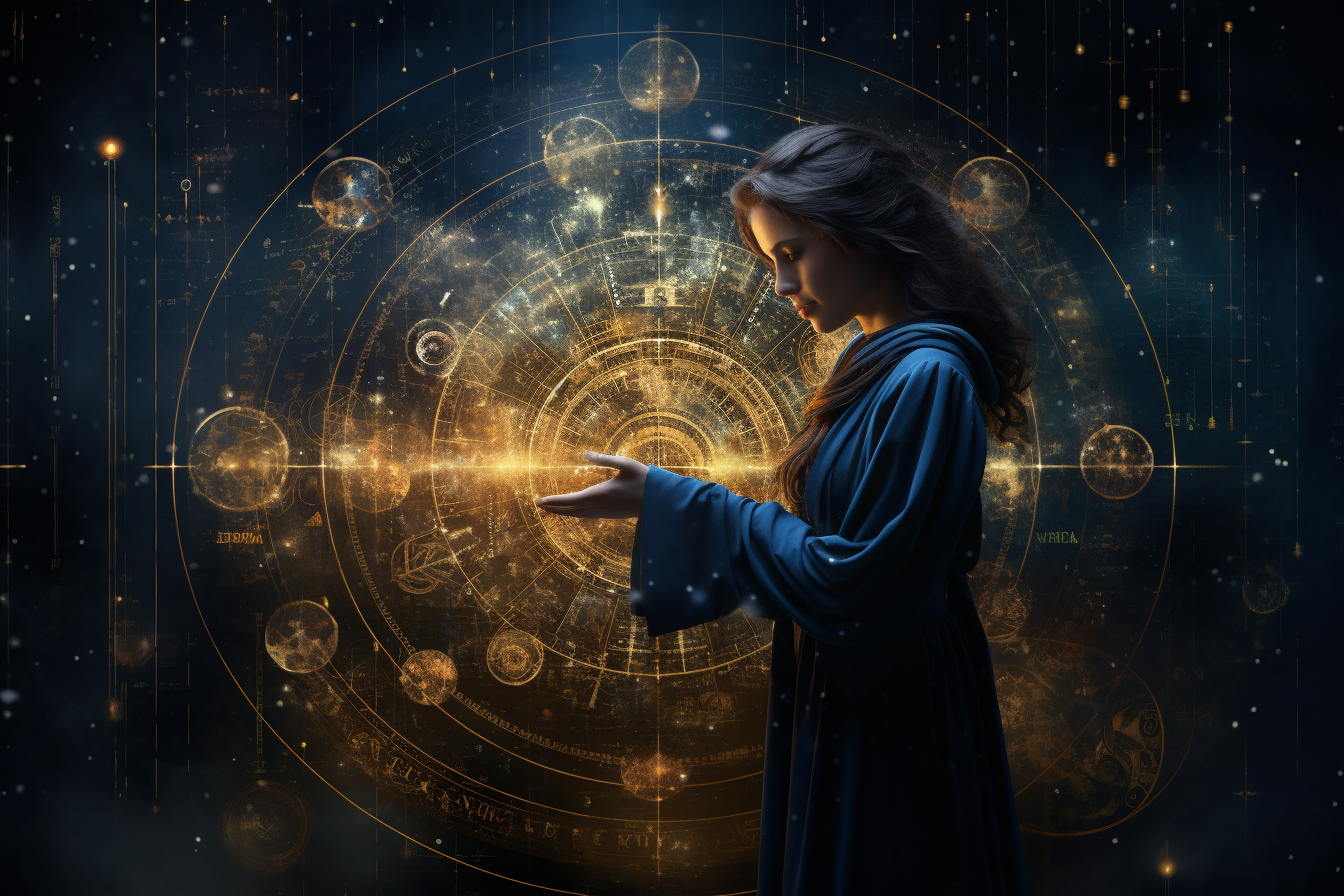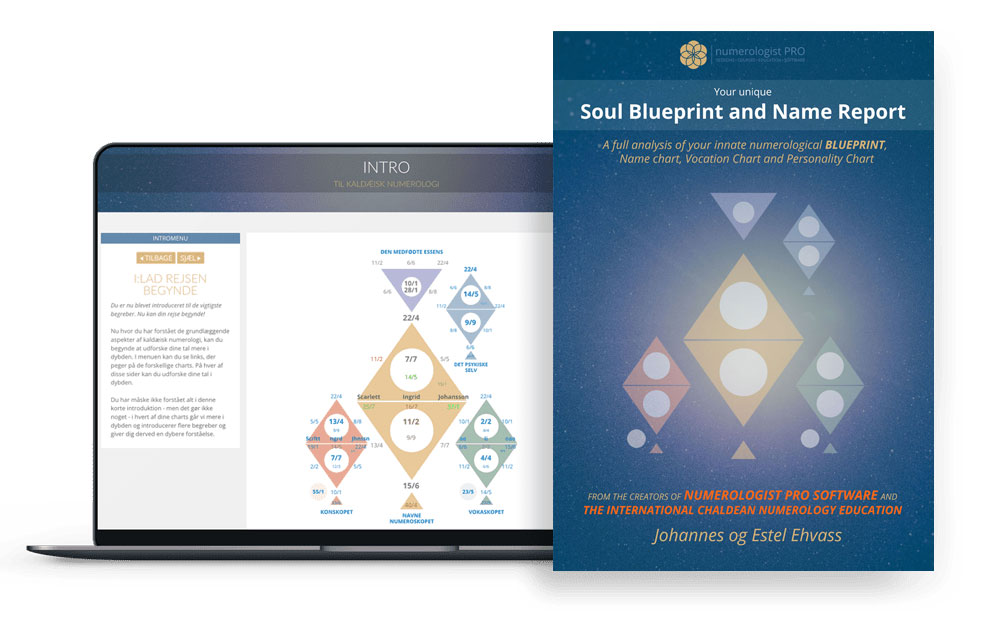Conclusion: Reflecting on Astrology’s Evolution

Johannes Ehvass
Welcome, dear reader! The Enlightenment, often hailed as the Age of Reason, ushered in an era where logic and empirical evidence reigned supreme. As society championed scientific discovery and rational thought, astrology faced a unique challenge. Positioned at the intersection of ancient beliefs and emerging skepticism, the celestial practice found itself both critiqued and revisited. Yet, even amidst this intellectual revolution, the allure of the stars persisted, reflecting the enduring human desire to find meaning beyond the tangible. Join me as we explore this dynamic period, where astrology navigated the delicate balance between tradition and transformation.
From Mysticism to Empiricism and Beyond
Introduction: A Journey Through Time

Astrology has been a companion of humanity since ancient civilizations first looked up to the night sky, seeking patterns and meaning. As with many disciplines, its journey is one marked by growth, transformation, skepticism, and revival. This article will explore the progression of astrology from its mystical roots to empirical analyses and the modern synthesis of these approaches.
The Mystical Beginnings
Seeking the Divine in the Heavens
Early civilizations like the Babylonians, Greeks, and Egyptians imbued the cosmos with a sense of divinity. For them, celestial events weren’t just astronomical occurrences—they were messages from the gods. Astrology was a tool for deciphering these divine communications, providing insights into fate, destiny, and the will of the gods.
Cultural Syncretism and Astrological Fusion
As empires expanded and cultures merged, so too did their astrological practices and beliefs. The Hellenistic period is a prime example, where Greek and Egyptian astrological traditions fused, resulting in a more comprehensive and detailed system.
Enlightenment, Empiricism, and the Challenge to Astrology
The Rise of Scientific Methodology
The Enlightenment era brought a heightened emphasis on reason, scientific inquiry, and empirical evidence. As the scientific method became the gold standard for knowledge acquisition, astrology faced criticism. Its principles, largely rooted in mysticism, were challenged by the burgeoning scientific community.
Astronomy and Astrology: The Parting Ways
Historically, astrology and astronomy were intertwined. However, the Enlightenment further solidified their divergence. Astronomy, with its empirical approach to studying celestial bodies, became a recognized scientific discipline. In contrast, astrology, focusing on symbolic interpretations and predictions, was relegated to the realm of pseudoscience by many.
The 20th Century: A Synthesis of Old and New
Psychological Astrology: Bridging Spirituality and Science
The 20th century witnessed the rise of psychological astrology, primarily through figures like Carl Jung. Astrology was no longer just about predicting future events but understanding the psyche. The natal chart became a tool for self-reflection, introspection, and personal growth.
Empirical Investigations into Astrology
The modern era also saw attempts to study astrology using empirical methods. While many studies yielded inconclusive results, the endeavor highlighted a willingness to engage with astrology on scientific terms. Some astrologers even introduced statistical methods to validate and refine astrological techniques.
Modern Approaches: A Pluralistic View
Traditional vs. Modern Astrology
Today’s astrological community is diverse, encompassing those who adhere strictly to traditional methods and those who incorporate contemporary insights, including psychology and empirical findings.
The Continuing Role of Mysticism
Despite the push for empiricism, mysticism remains an integral part of astrology. Many argue that the true essence of astrology lies beyond the grasp of empirical analysis. For them, astrology is an art, a spiritual discipline, and a form of intuitive wisdom.
Conclusion: Astrology’s Resilience and Adaptability
The journey of astrology from mysticism to empiricism and beyond is a testament to its adaptability and enduring relevance. As society, science, and spirituality evolve, so too does astrology, reflecting the changing tides of human thought and experience. Whether viewed as a mystical tradition, a psychological tool, or an empirical subject of study, astrology’s multifaceted nature ensures its continued place in the tapestry of human culture.
Astrology’s Lasting Appeal and Timeless Nature
Introduction: The Enigma of Astrology’s Endurance
The annals of history are littered with forgotten practices and beliefs, yet astrology persists. From ancient civilizations to the modern digital age, astrology’s allure remains undiminished. This article delves into the reasons for its timeless appeal, the intrinsic human needs it addresses, and its adaptability in an ever-changing world.
The Universal Search for Meaning
The Cosmic Narrative
Humans have always sought narratives to provide meaning to their existence. The stars and planets offer a grand tale where individuals can find their place in the vast universe. Astrology provides a framework that links personal lives to cosmic events, giving a sense of significance in the grand scheme of things.
Finding Order in Chaos
Life is unpredictable, filled with uncertainties. Astrology, with its cycles and patterns, offers a semblance of order. It provides explanations for why things happen and suggests potential outcomes, giving individuals a sense of control and predictability.
Personal Insight and Self-Discovery
A Mirror to the Self
Natal charts, a foundational tool in astrology, are deeply personal. They offer insights into an individual’s nature, strengths, challenges, and life’s purpose. For many, astrology serves as a tool for introspection, helping them understand their desires, fears, and potentials.
Guidance in Decision Making
Faced with life’s myriad choices, people often seek guidance. Astrology provides counsel on when to act, potential challenges, and favorable periods, aiding in decision-making processes. Whether it’s choosing a career path, beginning a relationship, or relocating, astrology offers direction.
The Social Aspect: Bonding and Belonging
Shared Language and Community
Astrology provides a shared language, allowing individuals to connect with others who have similar beliefs. Online forums, workshops, and conventions create spaces where enthusiasts can gather, share experiences, and feel a sense of belonging.
Compatibility and Relationships
From romantic liaisons to business partnerships, astrology is often employed to assess compatibility. Sun signs, moon signs, and other astrological factors offer insights into how individuals relate, enhancing understanding and fostering stronger bonds.
Cultural Integration and Adaptability
Resonance with Popular Culture
Astrology seamlessly integrates with popular culture. From zodiac-themed products to astrological plot points in movies and literature, its elements are ubiquitous. This integration ensures astrology remains relevant and accessible to new generations.
Adapting to Modern Challenges
Astrology evolves to address contemporary issues. For instance, as environmental concerns gain prominence, some astrologers focus on planetary shifts and their implications for Earth. Similarly, as the digital age advances, astrology adapts, with online readings and apps becoming prevalent.
Conclusion: The Eternal Dance with the Stars
The essence of astrology’s enduring allure lies in its multifaceted nature. It addresses fundamental human desires: the need for meaning, understanding oneself, connecting with others, and navigating life’s challenges. Its adaptability ensures it remains relevant, while its deep roots anchor it as a timeless practice. As humanity progresses, astrology continues its dance with the stars, reflecting the ever-evolving human spirit.
Modern Reception and Future Prospects of Astrology
Introduction: The Resilience of Astrological Practice
Astrology, with roots that trace back to ancient civilizations, remains an influential force in the lives of many. Its resilience is a testament to its adaptability and continued relevance. This article will delve into the contemporary reception of astrology, exploring its integration into modern culture and pondering its future trajectory.
Modern-Day Acceptance and Challenges
A Dual Reception
Today’s world sees a polarized response to astrology. On one hand, there’s a substantial demographic that embraces it, finding solace, guidance, and a sense of identity. On the other, skeptics challenge its legitimacy, often citing scientific arguments.
Academic and Scientific Scrutiny
Mainstream academia and science largely dismiss astrology as pseudoscience. Critics argue that there’s no empirical evidence supporting astrological claims. Moreover, the placebo effect, cognitive biases, and the Barnum effect (where individuals believe vague, general statements about personality to be highly accurate) are often cited as explanations for why people feel astrology works.
Cultural Resurgence
Despite skepticism, astrology experiences a robust resurgence, especially among younger generations. Digital platforms, social media, and an increasing number of apps dedicated to zodiacs, horoscopes, and natal charts signify its widespread popularity.
Astrology in the Media and Popular Culture
Representation in Entertainment
Films, TV series, and literature frequently incorporate astrological themes or characters who practice astrology. These representations, whether accurate or exaggerated, shape public perceptions and often lead to increased interest.
Celebrity Endorsements
Prominent figures and celebrities who endorse or engage with astrology contribute to its modern appeal. Their testimonials, personal stories, or even casual mentions can inspire fans and followers to explore astrological practices.
The Commercial Aspect: A Booming Market
Products and Services
From zodiac-themed merchandise like jewelry, apparel, and home decor to professional astrological consultations, the market for astrological products and services is booming. The demand reflects both genuine belief and the allure of the aesthetic.
Workshops, Festivals, and Conventions
Astrology-centered events have become cultural phenomena, attracting enthusiasts from all walks of life. These gatherings allow for learning, networking, and celebrating the rich tapestry of astrological tradition and innovation.
Future Trajectories and Evolution
Integrating with Other Disciplines
As boundaries between disciplines blur, astrology might find intersections with fields like psychology, environmental science, and even quantum physics. These intersections could lead to enriched interpretations and novel practices.
Digital Innovation and Virtual Reality
The digital realm will inevitably shape astrology’s future. Virtual reality, for instance, might offer immersive astrological experiences, such as navigating one’s natal chart in a 3D space or attending virtual astrological retreats.
Environmental Astrology and Global Shifts
As global challenges like climate change become pressing, astrology might evolve to reflect these shifts. Astrologers may focus more on the broader implications of planetary movements, considering their significance in the context of global events.
Conclusion: Astrology’s Ever-evolving Journey
The landscape of astrology is dynamic, molded by societal shifts, technological advancements, and cultural evolution. As it has done for millennia, astrology will likely adapt, innovate, and find new avenues of expression. Its enduring presence speaks to its deep resonance with human nature, and its journey into the future promises to be as fascinating as its rich past.

Johannes & Estel: Renowned authorities in Numerology, Astrology, and the esoteric arts. As the founders of Scandinavia's premier Numerology school, we're delighted to share our insights through this curated series on astrology. Dive in and discover the stars.
The Worlds Most Advanced Numerology Report

Your birthdate reveals your unique life purpose, potentials, talents, weaknesses, and karma in this life.
Your names show what you attract into your life regarding your career, relationships, happiness, money, and success.
GET THE REPORT HERE
Introduction to Astrology
The history of Astrology
Moving beyond deterministic astrology
Foundation of Astrology: Planets, Signs and Houses
Astrology and the Holographic Universe
The Holographic Universe
The Human Psyche as a Mirror to The Solar System
The Human Body as a Mirror to The Star Signs
Astrology Background
Egyptian Astrology
Mayan Astrology
Chinese Astrology
Indian Astrology - Jyotish
Celtic Astrology
Tibetan Astrology
Mesopotamian Astrology
Early Mesopotamian Astrology: The Dawn of Celestial Divination
Enuma Anu Enlil: The Epicenter of Babylonian Celestial Omen Interpretation
Babylonian and Chaldean Astrology
Babylonian and Chaldean Astrology
Chaldean influence and evolution
Chaldean Wisdom: Safeguarding and Transmitting Astrological Knowledge
Hellenistic Astrology
Hellenistic Astrology background
Claudius Ptolemy and Tetrabiblos
Vettius Valens
Dorotheus of Sidon
Persian Astrology
Persian Astrology background
Sassanian Astrology
Late Antiquity and The Transition Period
Late Antiquity and The Transition Period
Hellenistic to Islamic Transition: The Torchbearers of Astrological Wisdom
Islamic Golden Age
Arabian Astrology Background
Arabian Astrology Contributions
Medieval Astrology
Introduction: The Medieval Cosmos
Monastic Preservers: Astrological Knowledge in the Dark Ages
Astrology in Medieval Medicine
Kings, Queens, and Constellations: Astrology in the Medieval Court
The Church and the Stars: A Contentious Relationship
Universities and Scholastic Pursuits: Academic Astrology
Astronomy & Astrology: Tools of the Trade
Medieval Astrological Houses and the Synthesis of Traditions
Transition to the Renaissance: Humanism and the Celestial Arts
Reflections: Medieval Astrology's Echoes in Modern Practice
Astrological Art of the Middle Ages
Famous Medieval Astrologers
Medieval Astrological Texts
Renaissance Astrology
Renaissance Humanism and Astrology
Scientific Advancements and Astrology
The Social Fabric: Astrology in Everyday Renaissance Life
Court Astrologers of the Renaissance
Controversies and Conflicts: Astrology Under Scrutiny
Renaissance Texts and Authors: Continuation of a Tradition
Astrology and Art: Celestial Imagery in the Renaissance
Renaissance Astrological Practices: Evolutions and Innovations
End of the Renaissance: The Gradual Decline of Astrological Influence
Renaissance Astrology's Echo in the Modern World
Enlightenment Astrology
Introduction: The Enlightenment and Astrology
Challenging the Stars: Astrology's Critics during the Enlightenment
Astrology and the New World
Astrology in the 19th Century
The Dawn of Psychological Astrology
Astrology in the 20th Century: A Modern Renaissance
Astrological Associations and Schools
Modern Controversies and Astrology
Astrology and Popular Culture
Astrology and Technology
Current Trends and Future Directions in Astrology
Conclusion: Reflecting on Astrology's Evolution
The Planet Significances
The Sun in Astrology
The Moon in Astrology
Mercury in Astrology
Venus in Astrology
Mars in Astrology
Jupiter in Astrology
Saturn in Astrology
Uranus in Astrology
Neptune in Astrology
Pluto in Astrology
Chiron in Astrology
Black Moon Lilith in Astrology
Pars Fortuna in Astrology
Ceres in Astrology
Houses in Astrology
Introduction to Astrological Houses
The Angular Houses
The Succedent Houses
The Cadent Houses
The 1st House
The 2nd House
The 3rd House
The 4th House
The 5th House
The 6th House
The 7th House
The 8th House
The 9th House
The 10th House
The 11th House
The 12th House
Interaction Between Houses
Derived Houses, House Rulers, and Interceptions
Conclusion: Synthesizing House Knowledge
All Materials © 2023 & 2024 Numerologist PRO
Terms of Service: Information provided by Numerologist PRO and/or from this web site is not intended as advice (medical, psychological, financial or other), nor is it intended to replace your work with a qualified professional (medical or otherwise). You should maintain your relationship with your providers and consider the services of this site as informational only. Any information, stories, examples, or testimonials presented on this website do not constitute a warranty, guarantee, or prediction regarding the outcome of an individual. This web site is a sharing of knowledge and information of numerology/energy work based on the experiences of Numerologist PRO. You are encouraged to make your own decisions based on your own research and inner guidance. By booking and receiving services, you agree to fully release and hold harmless Numerologist PRO and all it's affiliated numerologists from and against any liability or claim that may arise out of or in connection with their service(s).
Numerologist PRO © 2021

CONTACT
numerologist@numerologistpro.com
LIKE US, and get free numerology tools, info about your personal numbers, best business dates of the year - and more!
YOUR FREE NUMEROSCOPE CHART
Enter your name and email below and get access to our free online numerology chart tool.